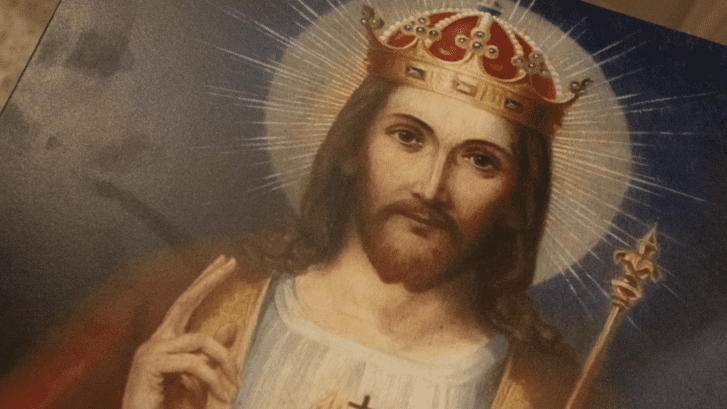Christ the King
A young child climbed to the top of a large tree. His mother, worried, called out to him, “What are you doing?” “Nothing,” the boy replied. “Well, then, get down here,” his mother answered in an angry tone. The child was confused. “Why should I get into trouble for doing nothing?” he wondered.
Today’s Gospel tells us that much of the time we get into trouble for doing nothing.
I was hungry, and you gave Me no food…. I was thirsty, and you gave Me no water…. I was away from home, and you gave Me no welcome…. Naked, and you gave Me no clothing. I was ill, and in prison, and you did not come and comfort Me. In other words, in all of these cases, nothing was done.
Of course we sin when we do wrong things: stealing, lying, etc. But so often we overlook the possibility of sinning by not doing.
The Gospel calls our attention to the judgment all of us will face. It is wholly contingent upon whether one has responded humanely to the needs of the marginalized, the nameless, the homeless, and those that society looks down upon. You do not define neighbor by race or religion. Neighbor is a four-letter-word…. Need.
We have our modern day outcasts, often ostracized from human society, separated from their families and even, at times, from our churches; the mentally ill who are prematurely released from hospitals, and the substance abusers, unable to obtain treatment.
Then we have the runaways who sleep on our streets every night. Add to them some of our elderly, for whom a nursing home is hardly a home, who watch and wait for a son, a daughter, a relative or friend, anyone to spend an hour with them.
There are many people in our world who need us. Maybe we can update the list a little. Like, I was being picked on or gossiped about, and you did nothing to defend me. I was headed for disaster by my bad decisions, and you simply laughed at my destructive behavior. I was discouraged, and you thought “Oh well, he’ll get over it.” What are you doing? Nothing!
St. Theresa of Avila, a great mystic and doctor of the church, wrote after 20 years of being a nun, “Christ has no body on earth but yours. No hands, but yours. No feet, but yours. Yours are the eyes through which He is to look out at the world. Yours are the hands He must use to bless.”
St. Theresa understood that if the hungry, thirsty, homeless and sick are to be cared for, if Christ’s mission is to be sustained and continued, then it is to be done by us, His followers. He made enemies of the powerful because He put compassion above tradition, love above law, and people above things and institutions.
In her book, “Out of Africa,” Karen von Blixen writing as Isak Dinesen tells the story of a young man who came to work for her. She employed many people on her farm. He worked out very well, and was a good manager. After a year he suddenly announced that he was going to leave. He said, “I wanted to work for a Christian for a year, to see how they treated their workers. Now I will work for a Muslim. I want to compare both of these faiths to see which one to follow.”
What would this young man choose if he lived among us? When we thought he was not looking, what would he think of what we did and how we acted? Or how we treated each other?
My friend, it is not for me to tell any of you how you should fit into today’s Gospel. I do, however, urge you to take time and listen to what God might be saying to you, might be asking you.
Perhaps He is saying to some of us, “Live simply so that others may simply live, especially those who experience far more of Christ’s crucifixion than His resurrection.”
In a short while I will read the preface of Christ the King. It tells us that His kingdom on earth is to be a kingdom of truth and life, a kingdom of holiness and grace, a kingdom of justice, love and peace.
We ask ourselves, is this the kingdom we experience every day? If not, why not? Perhaps we need to recall from time to time the words we began this mass with; “Forgive us for those things we have done, and for those things we have failed to do.”
When we stand before the Lord and He asks us, what did we do to bring about His kingdom on earth, make sure the answer is not, “Nothing.”


